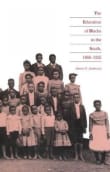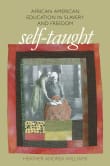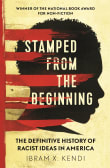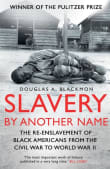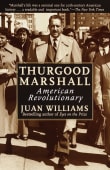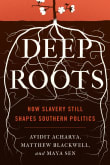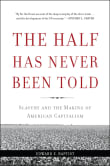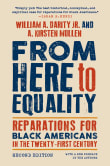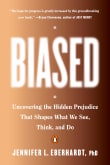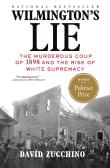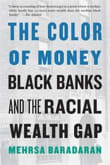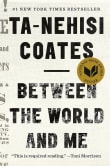The Color of Law
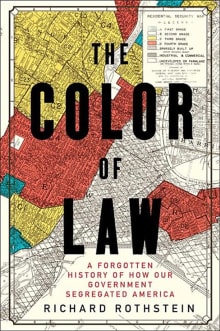
Book description
Widely heralded as a "masterful" (The Washington Post) and "essential" (Slate) history of the modern American metropolis, Richard Rothstein's The Color of Law offers "the most forceful argument ever published on how federal, state, and local governments gave rise to and reinforced neighborhood segregation" (William Julius Wilson). Exploding the myth…
Why read it?
9 authors picked The Color of Law as one of their favorite books. Why do they recommend it?

Rothstein mercilessly cuts through the political rhetoric of the past century of American politics and gets down to the nitty-gritty: Racial disparities in housing and economics were established and exacerbated by our own elected officials.
Rothstein exposes direct lines between government action and racial inequality, furthering the idea that the system isn’t broken. Rather, it works as it was designed to by allowing access to the few while neglecting the many.
From Paula's list on easing you out of your comfort zone.

The Color of Law does a brilliant job of making clear that racial segregation in America is not merely the result of market forces or individual choices; it was manufactured by government through a series of twentieth-century policies: racial zoning, redlining, and enforcement of racially restrictive covenants. The effects are still felt today.
I modeled my own book after Rothstein’s and updated his analysis to show that today, economically discriminatory zoning laws have replaced racially discriminatory practices, which helps explain why racial segregation has declined by 30 percent since 1970, but income segregation has doubled.
From Richard's list on government housing rules in America.

Academic, Author, and Senior Fellow at the Thurgood Marshall Institute, Richard Rothstein writes about how federally subsidized, single-family subdivisions—like Levittown in Long Island—created a white noose around urban areas.
Many people don’t know that every home in Levittown which was funded by the Federal Housing Administration was built for perspective buyers with an explicit clause not to sell, rent or re-sell a home to an African American. Although these deeds are no longer enforced or enforceable, over generations, the loss of equity and the discrepancy between wealth in Black households is entirely attributable to unconstitutional, federal housing policy that has…
From Kim's list on feeling at home.
If you love The Color of Law...

Want to know why American cities were so racially segregated? Richard Rothstein’s meticulously researched and powerfully presented evidence points to one overwhelming conclusion: racial segregation was put in place and enforced by state, local, and yes, the federal government.
Rothstein focuses on residential housing, not just in the South, but throughout the United States. Restrictive covenants, “redlining,” threats of violence, fears of declining property values—all these and more reinforced this American form of racial apartheid.
A sobering account of how racial discrimination was as American as apple pie.
From Dennis' list on understanding public policy challenges and failures.

When I was trying to figure out how the city of Charlotte became segregated, this book was a godsend. Rothstein explodes the myth that segregation in America grew primarily from individual choices, such as White people fleeing a neighborhood when a Black family moved in. He shows how local, state, and federal governments passed laws and made policies that created the housing and school segregation that much of the nation lives with today.
From Pam's list on that explain America’s systemic racism.

Many people think that racism is about individual acts of bigotry, and fail to recognize the systemic nature of racism, perpetuated by intentionally discriminatory public policies at the federal, state, and local levels. The Color of Law makes that process abundantly clear in the realm of the 20th-century housing policies that actively fostered and perpetuated neighborhood segregation. Many social scientists consider residential segregation to be the structural linchpin in America’s system of racial stratification. Understanding how we got there gives important insight into how we can change it. Everyone should read this book!
From Beverly's list on why racism persists.
If you love Richard Rothstein...

Rothstein explodes the myth that racial segregation in housing is generally a product of individual prejudice and/or the actions of private institutions, such as banks and real estate firms. This impressive historical survey of housing policy at all levels of government makes it abundantly clear that it was the laws and policy decisions passed by local, state, and federal government that established and continue to sustain the patterns of residential segregation that pose such a formidable barrier to racial equality in the US.
From Doug's list on the impact of race on American politics.

This book shatters the myth that “de facto” segregation—in essence, people’s choices about where to live, rather than legal barriers—led to most of the segregation that still exists in the United States. Rothstein documents case after case of local, state, and federal government actions all over the country to bar black people from neighborhoods, developments, and from homeownership in general until all-too-recent times. He also lays out the many ramifications of these policies, including the exclusion of black Americans from opportunities to build wealth through the purchase of real estate and from the benefits that spring from living in the…
From Ian's list on understanding Black history.

Rothstein’s work is exact in its understanding of how pervasive and purposeful our nation has been in its effort to segregate communities, schools, and social interactions according to racial lines. He demonstrates how the local, state, and the federal governments worked side-by-side to foster discriminatory laws and practices to ensure that African Americans (and others) were denied opportunities to live in residential neighborhoods that gave them access to good jobs, schools and equitable resources and services. In order to understand racism, classism, and educational disparities, this book is essential reading – without it, decision makers, as well as citizens, are…
From Marybeth's list on the history of African American education.
If you love The Color of Law...
Want books like The Color of Law?
Our community of 12,000+ authors has personally recommended 100 books like The Color of Law.






